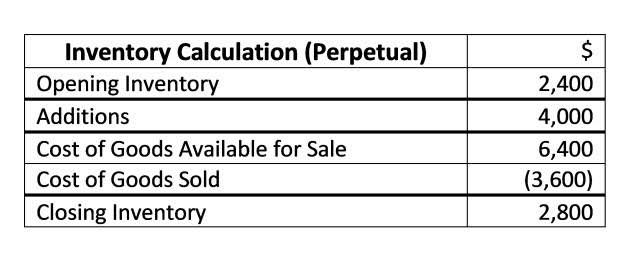
These transaction records are essential for accurate bookkeeping and reporting. Once you catch up bookkeeping gather financial documents, your bookkeeper will have to organize and categorize available data. You will have a clear overview of financial activities and pending records, so it’s easy to update them. Further, keeping the business’s accounts payable and accounts receivable up to date is always an essential activity in the catch-up bookkeeping process. This process will help determine the pending invoices to be sent and which overdue payments need to be followed up. It will also help to identify bad debt expenses and address any bad financial records, including bad financial data.
Limitations to What Catch-up Bookkeeping Can Do

Accurate categorization of expenses and income is essential for meaningful financial analysis and reporting. Collecting relevant financial documents is the cornerstone of effective catch up bookkeeping. Catch up bookkeeping refers to reconciling and organizing financial records that have been neglected or fallen behind over a certain period. This can lead to stress and bigger financial issues down the road. So let’s tackle the reasons why and how you can get all your bookkeeping back on track.
Q6: What are some mistakes or pitfalls to avoid during the catch-up bookkeeping process?

Understanding criteria, accurate calculations, and prompt payments are key for individuals with irregular income. Potential investors or partners would certainly wish to evaluate past and present financial records to understand the sustainability of the business. When the data is accurate and up-to-date, their trust in the organization increases, indirectly stepping up business prospects.
Step 2: Reconcile your bank accounts
Ultimately, the choice between a one-time catch-up and ongoing bookkeeping depends on your business goals and the complexity of your financial operations. Catch up bookkeeping is all about giving attention to neglected tasks and righting accounting wrongs. This process will involve the catch-up bookkeeper or team looking through old company accounting records and working their way to the present. They will reconcile your accounts payable, accounts receivable, bank statements, unfiled tax documents, or other bad financial data. When businesses struggle to maintain organized financial records, catch up bookkeeping becomes essential. Disorganized documentation, including scattered receipts, invoices, and bank statements, can hinder accurate financial reporting and decision-making.
- Ensure every account is correctly labeled to sidestep confusion down the financial road.
- Collecting relevant financial documents is the cornerstone of effective catch up bookkeeping.
- Making bookkeeping a part of your regular schedule and streamlining the process can help ensure that your books are always up to date.
- Handlingfinancials and messiness aren’t mutually inclusive.What’s more, we’d ask that you don’t consider a broken system as a fact ofbookkeeping.
- Since the dedicated team will focus solely on catch-up bookkeeping tasks, the chances of errors are substantially decreased leading to improved accuracy of the statements created.
- Perhaps your current accounting software doesn’t offer the type of reporting you’re looking for.
- By outsourcing catch up bookkeeping, businesses can focus on core activities while professionals handle intricate financial details, reducing the risk of penalties and legal issues.
It often occurs when businesses or individuals fail to maintain regular bookkeeping practices due to time constraints, lack of resources, or other priorities. Once the financial documents are collected and organized, account reconciliation begins. This process involves comparing recorded transactions with bank statements and other financial records to identify discrepancies or errors. Reconciling accounts ensures accuracy and integrity in the financial reporting process. Before we jump into how to catch up on your bookkeeping, it’s important assets = liabilities + equity to understand why bookkeeping is so critical for your business (no matter the size!). Bookkeeping involves keeping track of your income, expenses, and financial transaction.
Advantages of Updated Records

For accurate accounting integrity, evaluating bank statements, income, and expenses, and addressing discrepancies between financial records and statements is necessary. Bad debt expenses, late payments, and unbilled revenue can upset your business’s cash flow and financial stability. https://www.bookstime.com/ Consistently updated accounts receivable and payable let you forecast more accurately and manage your cash flow better. The long-term health and sustainability of your business are directly tied to maintaining accurate and up-to-date financial records. Not doing bookkeeping catch-up can put the future of your business at risk.

Gather all past receipts
The financial consequences of neglecting bookkeeping catch-up can be severe for your business. From challenges with cash flow to inaccurate financial statements, the effects can be extensive and severe. To catch up on bookkeeping, you need to get all the necessary documents together, like invoices, receipts, bank statements, and salary records, and enter it correctly into your financial system. This could also mean balancing the books, making changes to the records, and making sure every transaction is correctly categorized. Financial data mismanagement can mean catastrophe for the future of a business.

These include bills for business activities that are still currently operating in your business’s closing period to ensure these expenses will appear on your year-end financial statement. Under an accrual basis, if a customer doesn’t pay you for work completed, you can write this off as a bad debt expense. In order to deduct the cost of bad debt from your tax return, you will need to prove to the IRS that you have taken reasonable steps to collect the debt but have been unable to recover the amount. The catch up approach employs several methodologies to streamline the process of reconciling and updating financial records. During business growth or transition periods, such as expansion into new markets or changes in ownership, businesses may encounter increased complexities in their financial operations.
